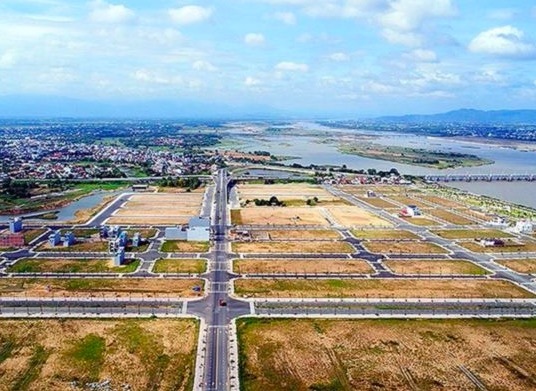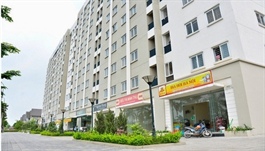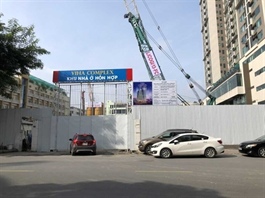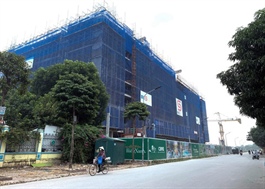Status of condotel ownership may require further direction
Status of condotel ownership may require further direction
Although a new decree will allow the issuing of ownership certificates to condotels, experts say the regulations will still be inadequate and need to be supplemented in the near future to create a good enough legal corridor for the thousands of condotels in the market.

From May 20, Decree No.10/2023/ND-CP, which amends and supplements a number of articles guiding the implementation of the Law on Land, will officially take effect, meaning tourist accommodation built on commercial and service land will be certified for ownership of land-attached construction works.
Decree 10 is considered a good sign for project developers and buyers of condotels, with some experts predicting that the move will remove long-standing problems in the issue of ownership certificates for condotels.
According to Nguyen Van Dinh, chairman of the Vietnam Association of Realtors, the decree is the first step in solving legal bottlenecks for condotels. “This is the expectation of thousands of investors who have been participating in the resort and tourism real estate market,” Dinh said.
Policymakers and associations have organised many seminars and given recommendations to solve this problem, and now we have the first result. I think that in the coming period, tourism and resort projects will see more benefit for investors,” Dinh added.
Vu Hoang Hai, a condotel broker in Danang, added that Decree 10 will be the legal basis for the authorities to guide the procedures for granting so-called pink books for owners “and create a push for the market” to resume its recovery.
The legal corridor for condotels was also one of the issues that the foreign business community raised at the Vietnam Business Forum (VBF) held in March in Hanoi.
Tran Anh Duc, co-head of the Investment and Trade Working Group of the VBF, said that a consistent legal framework will also help attract foreign individuals to buy and own new properties such as condotels, tourist villas, resort villas, bungalows, officetels, and townhouses.
Barriers remain
However, according to experts, there are many obstacles to letting condotel become treated like any other real estate product.
Nguyen Duy Thanh, general director of Global Home Management, said that it is necessary to have a more detailed legal framework with specific regulations on management, exploitation, and operation of both condotels and officetels.
“The condotel is closely related to three parties: the owner of the apartment, the investor, and the operation management unit,” Thanh said. “In the draft laws on real estate, land, and housing, it is necessary to clearly define these so that the legal regulations follow accordingly.”
Moreover, Thanh added, condotels which were already issued a pink book should be considered for an extension of land use rights after the first phase of 50 years if that tourist project is in good planning, for another maximum of 50 years.
Vo Hong Thang, deputy director of research and development at DKRA, said that the problem of resort real estate is not only the pink book.
“Decree 10 helps to partially solve the problems of resort real estate. However, to completely remove obstacles and promote recovery, it is necessary to have more synchronous solutions, both in terms of legality, credit capital, and the recovery of the tourism industry,” said Thang.
Specifically, he added that the government needs detailed guidance for Decree 10 to be effectively applied and implemented.
In addition, the process of granting pink books of this type needs to be more flexible.
“There should be specific regulations on business, operation management, and ownership terms for condotel types,” Thang explained. “Secondly, there should be a legal corridor to protect the interests of owners in the implementation and payment of commitments from developers.”
According to statistics from the Ho Chi Minh City Real Estate Association, by the end of 2022, there were more than 83,000 condotel apartments waiting to be issued with pink books. Most of them were built in resort projects in commercial and service land funds with a lifespan of 50-70 years.
In recent years, the condotel segment and businesses investing in this segment have faced many difficulties because of pandemic slowdown. In addition, investors have not yet received expected profit from condotel exploitation. The transfer of condotels is also not easy because of a lack of legal clarity.
A recent report from DKRA Group shows that in the first four months of this year, the country only recorded a few successful transactions of resort villas, and no condotel projects have opened up for sale.
The supply and transactions of condotel apartments segment dropped dramatically due to the general effect of the frozen real estate market, and the apartment type was no longer attractive due to legal risks, the report added.
“Therefore, being granted a pink book and allowing legal perfection for condotels will help investors ensure their interests, and can also make the market more transparent. Meanwhile, the liquidity of condotels would be increased to ease the financial burden for their investors,” it said.



























